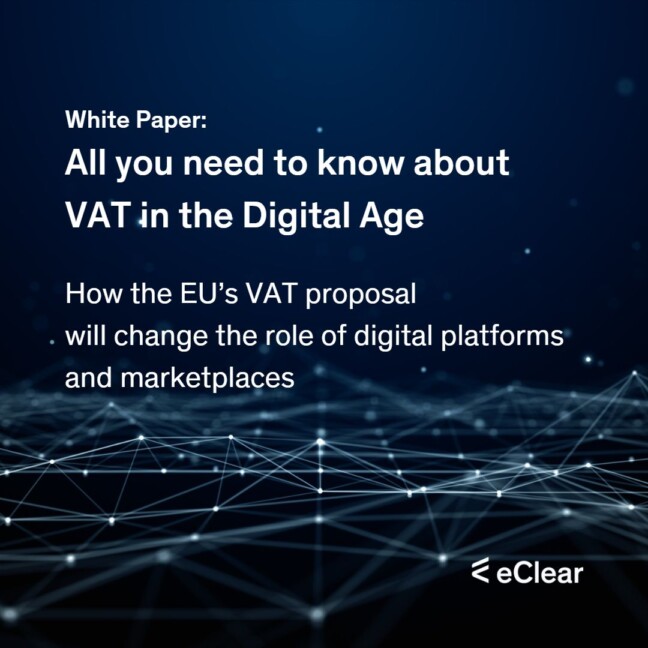The three-pillar reform of EU’s VAT regulations – ViDA – has been scrutinised in a recently concluded public consultation, with EU member states, parliaments, businesses, and sector associations actively participating. A notable concern among several tax authorities is the prospect of meeting the deadlines for necessary IT transformations and upgrades, especially given the absence of detailed final requirements. Historical data suggests a minimum of 18 months is generally needed to prepare for the implementation from the moment of agreement, i.e., the transposition of the VAT Directive changes, which isn’t expected until at least the end of 2023. Therefore, specific timelines, especially those related to Digital Reporting Requirements (DRR), will likely need to be extended. The DRR is perceived as the most significant component of VAT in the Digital Age (ViDA), considering the number of businesses it impacts.
Single VAT Registration and OSS Extension: Concerns and Recommendations

In the aftermath of the 2025 Single VAT Registration and One-Stop-Shop (OSS) regulation extension, a diverse range of challenges and suggestions are emerging from various taxpayers and countries. Some contest the exclusion of capital goods, arguing that it’s an essential component that should be included. There’s also concern about the potential overextension of the ‘deemed supplier’ concept, particularly about e-commerce platforms hosting EU-resident sellers of goods. The ambiguity over the level of fraud in this area and whether the burden of VAT collection justifies landing on these platforms has triggered debates.
Need for Clarity and Infrastructure Robustness
Further, the clarity of specific definitions in the proposed changes has been questioned, notably the role of auction platforms within this new framework. One contentious issue steadily gaining attention is the prohibition of deducting input VAT via the OSS. This has led to concerns that it might result in a surge in VAT reclaims, questioning the robustness and capacity of the member states’ IT systems to handle such an increase.
Proposals for Integration and Changes in Reverse-Charge VAT
In response to this complexity, several business associations have proposed a strategy to integrate Intrastat, hoping this could streamline the process within the OSS regime. Another point of discussion is the proposed amendment of Article 194(1) VAT Directive, which concerns the reverse-charge VAT. The shift from member states’ current optional imposition to an option for non-resident businesses to apply or register for VAT has been well-received. However, it’s recognised that this change could introduce complexity for companies, especially in tracking and correctly reporting invoices, thereby highlighting the need for further refinement and clarification.
Platform Economy: Diverse Opinions and Potential Challenges

In 2025, the platform economy, a significant part of the gig and sharing economy, is facing substantial debate due to a wide divergence of opinions on taxation. This discord has mainly been provoked by the European Commission’s selective taxation approach towards specific sectors within this economy. Questions about the proportionality of shifting VAT obligations to platforms, especially considering DAC7 reporting requirements, are widely debated.
Concerns and Lessons in the Evolving Framework
A need for refined definitions of terms such as ‘intermediary’ and ‘platform facilitating’ has been recognised to avoid a broad and potentially disruptive inclusion of activities in tax reforms. There’s also a call for drawing lessons from ‘deemed supplier’ regulations implemented in countries like Canada, India, the UK, Argentina, and New Zealand. Many believe this could offer beneficial insights to improve the current system.
Controversies Surrounding Types of Supply and VAT Application
Another layer of complexity is added with controversies surrounding the practicality of selecting only two types of supply (accommodation and ridesharing) and the potential risk of double taxation of the platform’s ‘deemed supplier’ services. Issues are also being raised about the proposed 45-day limit on accommodation rental for identifying ‘deemed suppliers’, the requirement for platforms to charge VAT if no VAT number is provided by their underlying supplier and the contentious inclusion of second-hand goods sales in the taxation scheme.
Digital Reporting Requirements: Concerns, Proposals and Perspectives

There is substantial support for the Digital Reporting Requirements (DRR) and its efficiency and anti-fraud objectives. However, concerns about the associated costs and proposed timelines have been raised, potentially discouraging intra-community trade, particularly for small enterprises. Some stakeholders suggest a phased implementation of e-invoicing and digital reporting, akin to France’s two-year plan, to ease the transition for businesses of different sizes.
The E-Invoicing Landscape: Contention and Clarification
The proposed removal of the requirement for member states to seek EC approval to introduce e-invoicing regimes in 2024 has generally been well-received. Nevertheless, the potential for legislative uncertainty and the implementation of expensive unharmonised regimes ahead of the 2028 harmonisation changes has raised some concerns. The e-invoicing space has seen debates around several proposed requirements, including the short notice period for businesses to accept e-invoices, the suitability of the CEN standard EN 16931 for B2B invoices, and the prohibition of PDF digital signature invoices. The idea of including IBAN payment details on e-invoices has also been questioned.
The Future of Digital Reporting and Encouraging DRR Adoption
Widespread concerns exist regarding the proposed two-day reporting timetable for digital reporting of Intra-Community Supplies from 2028, with many viewing it as unrealistic. Further, the proposed termination of summary invoices could potentially increase business reporting obligations, costs, and errors. A significant concern has been raised about the clash of the 2028 DRR implementation with SAP’s planned system update, affecting many taxpayers. To promote the adoption of DRR, incentives such as faster credit repayments, inadequate VAT debt relief, and accelerated direct tax write-offs on associated investment have been proposed. Lastly, a push for harmonisation in reporting regimes and a basic data set for DRR, focusing on data security and confidentiality, has been emphasised.
All you need to know about ViDA
Gain a competitive edge in the digital world by downloading our insightful white paper. It not only unravels the complexities of ViDA, but also provides a comprehensive understanding of the EU’s VAT proposal and its transformative impact on digital platforms and marketplaces.








